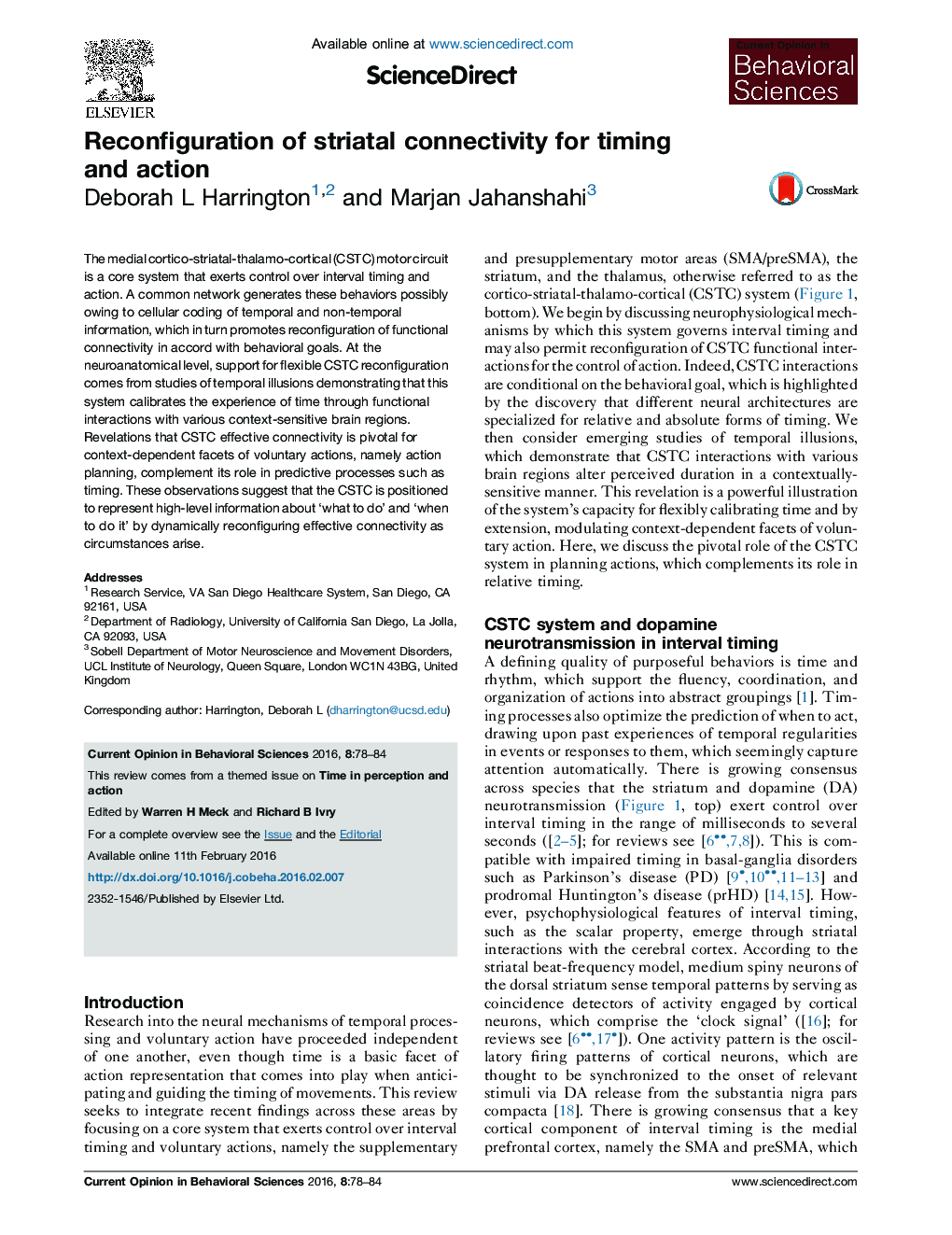| Article ID | Journal | Published Year | Pages | File Type |
|---|---|---|---|---|
| 6260484 | Current Opinion in Behavioral Sciences | 2016 | 7 Pages |
â¢Medial cortico-striatal-thalamo-cortical (CSTC) circuit governs timing and action.â¢CSTC coding of temporal and non-temporal information enables flexible connectivity.â¢CSTC interactions with context-sensitive brain centers calibrate perceived duration.â¢CSTC connectivity is pivotal for context-dependent facets of voluntary actions.â¢CSTC dynamically reconfigures functional connectivity for action planning and timing.
The medial cortico-striatal-thalamo-cortical (CSTC) motor circuit is a core system that exerts control over interval timing and action. A common network generates these behaviors possibly owing to cellular coding of temporal and non-temporal information, which in turn promotes reconfiguration of functional connectivity in accord with behavioral goals. At the neuroanatomical level, support for flexible CSTC reconfiguration comes from studies of temporal illusions demonstrating that this system calibrates the experience of time through functional interactions with various context-sensitive brain regions. Revelations that CSTC effective connectivity is pivotal for context-dependent facets of voluntary actions, namely action planning, complement its role in predictive processes such as timing. These observations suggest that the CSTC is positioned to represent high-level information about 'what to do' and 'when to do it' by dynamically reconfiguring effective connectivity as circumstances arise.
